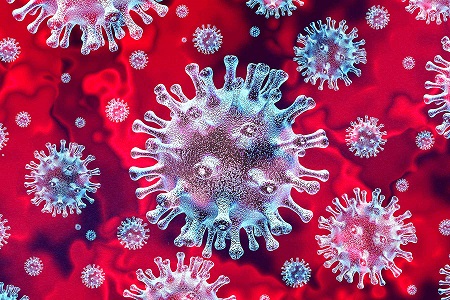Dealing with the unforeseen challenges caused by the COVID-19 pandemic has taken a significant toll on people all across the world. As many as 213 countries and territories have registered COVID-19 cases, and the entire world is buzzing with uncertainty and questions: How long will the pandemic last? What will people's lives look like once the pandemic is over?

Covid-19 has had a drastic effect on people's mental health for many reasons. People can't leave their homes to go to parks for a run, meet their loved ones, and are feeling very irritable that they are being cooped up. People's anxiety has become worse due to their inability to do much to help alleviate the situation. Inaccessible therapy due to poor internet connection, not being able to pay online, and lack of necessary contacts and resources, has resulted in a significant rise in depression and anxiety levels.
With lockdown implemented due to Covid-19, there has been a spike in reported domestic abuse, which means that an extreme amount of violence is happening behind closed doors. Victims of domestic abuse are caged with their abusers and are unable to go anywhere safe. There is much more anger due to the inability to do much about the current situation which may be fuelling these attacks. However, the good thing is that more and more victims are reporting cases and helplines are being created to help with the safety of the women following all Covid-19 safety guidelines.
Many daily age workers have lost their jobs due to Covid-19 and have no income. Most of these daily wage earner's families rely on them to be the breadwinner, so the loss of their jobs has heavily impacted the families. These people do not have sufficient funds to provide for their family, and due to cutting of transportation lines, abruptly many of them are stranded. However many charities are working hard to help the families as well as the stranded people and are raising money and distributing kits.
India's nationwide lockdown amidst the COVID-19 pandemic has critically dislocated its migrant population. Lacking jobs and money, and with public transportation shut down, hundreds of thousands of migrants were forced to walk hundreds of miles back to their home villages - with some dying during the journey.
On the brighter side, reduced transportation and reduced economic activity are both having a large impact. Some good trends that may outlive the immediate pandemic that would help reduce carbon emissions are more teleconferencing to reduce unnecessary business travel, reduced international trade due to the need to produce more local goods, and more remote working, as businesses find it is unnecessary to be on-site and people push for the freedom to work from home.
The COVID-19 pandemic and the associated economic crisis are posing huge challenges, raising many unknowns, and imposing wrenching trade-offs. Both crises are global, but their impacts are deeply local. The policy response to both crises needs to be rapid, even if it is rough around the edges. But countries cannot pull this off on their own-the global crises require global solidarity and coordination.